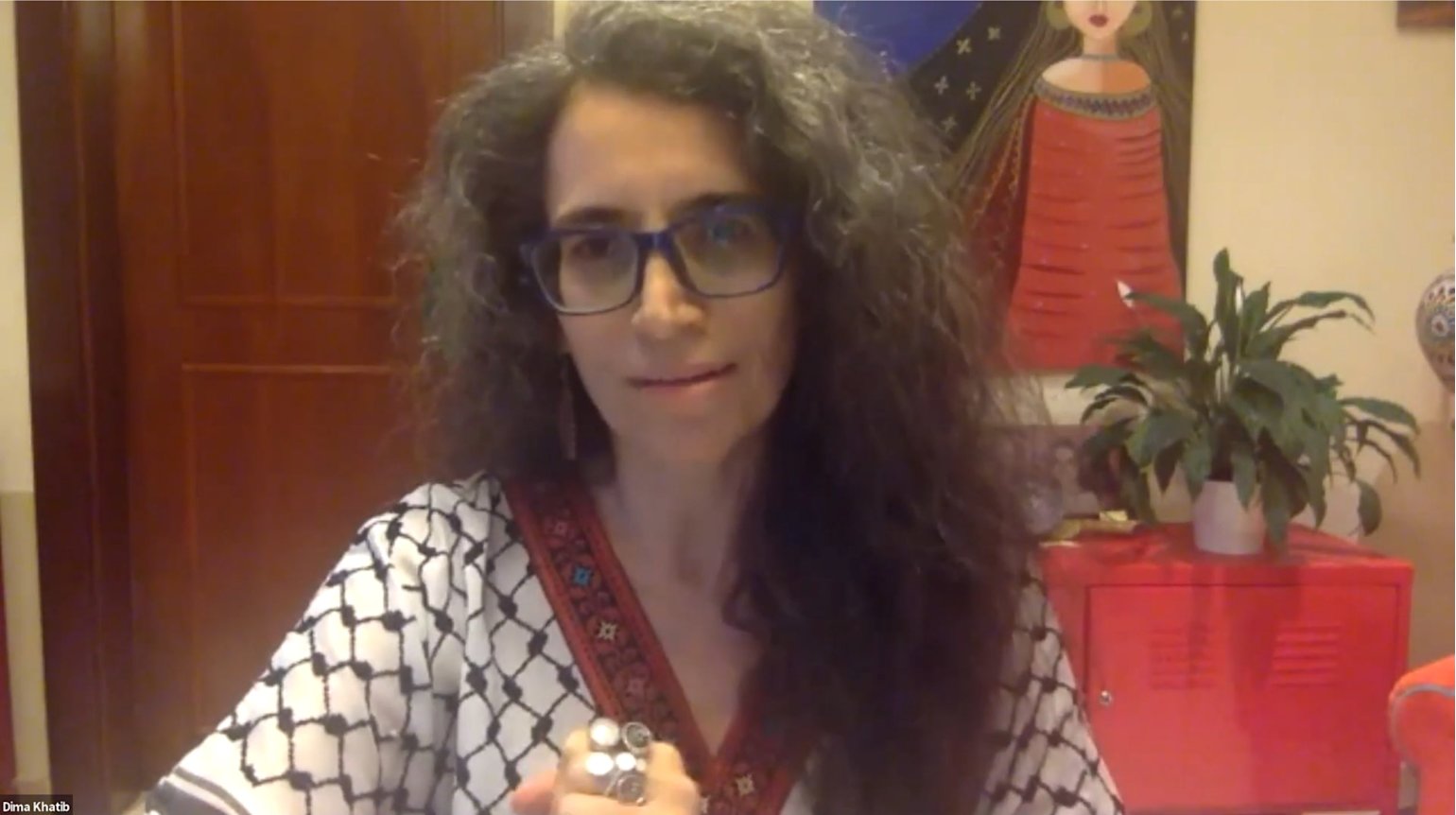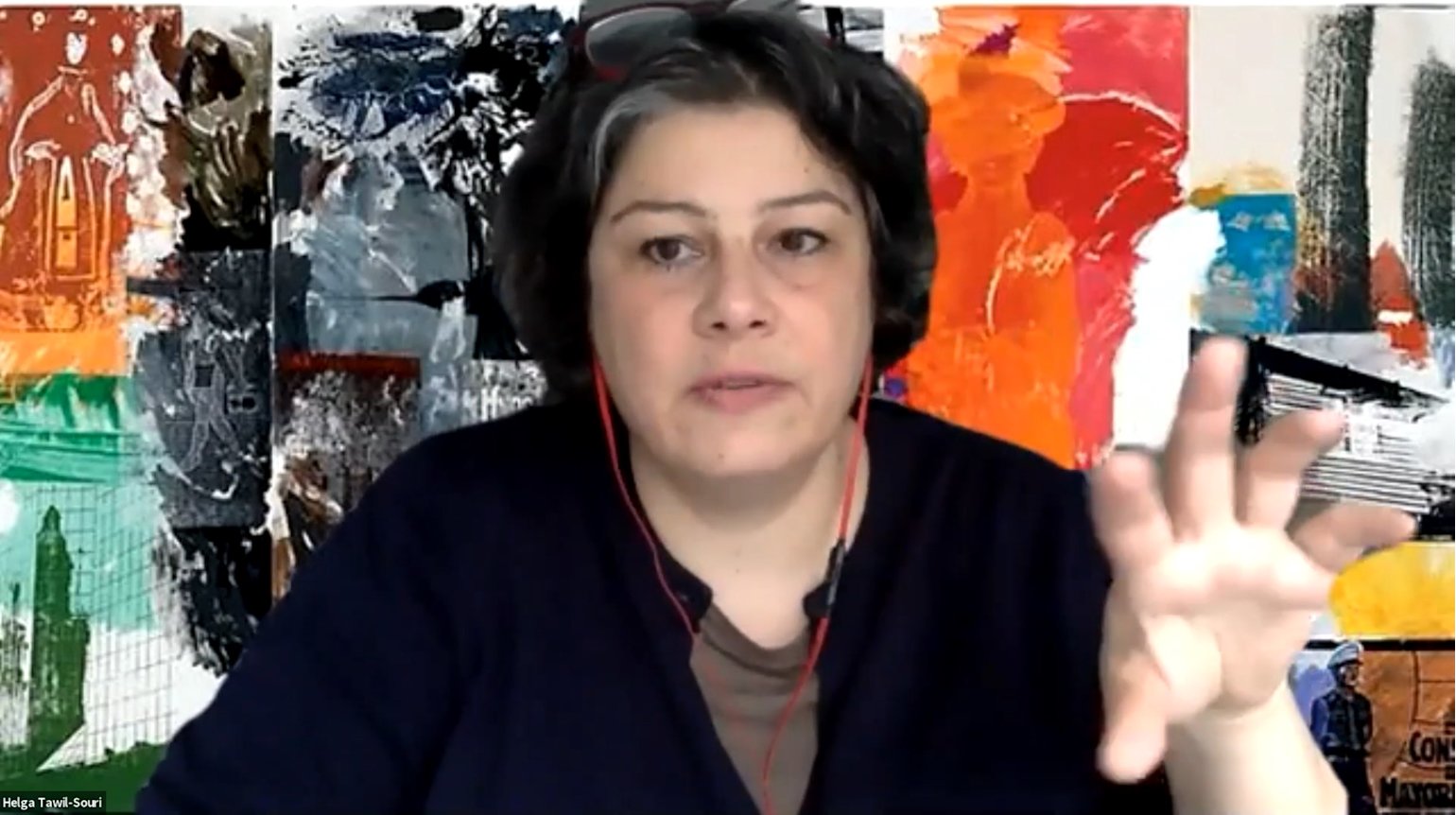Coronavirus (COVID-19) Updates
For the latest COVID-19 information and updates from Qatar Foundation, please visit our Statements page

Hashtags like #savesheikhjarrah and #unmutepalestine have become immensely popular for calling out the bias of muzzling Palestinian voices.
Image source: Rahalarts, via ShutterstockA talk organized by Northwestern University in Qatar, addressed the “digital occupation” in the war against Palestine
In light of the recent Israeli displacement of Palestinian families from the Sheikh Jarrah neighborhood in East Jerusalem, the world rose against the human rights violations by the Israeli government. Only this time, the fight for justice is not limited to being on the ground, it is a struggle on social media platforms as well.
While the Israel-Palestine conflict has been ongoing for nearly 70 years, Palestinian voices have been constantly and deliberately silenced by global media – an act of injustice that continues even today in the digital sphere. Tech companies like Facebook, and Twitter are constantly taking down a majority of the content that supports the Palestinian cause. And when questioned about why this content is being brought down, their response ranges from “a mistake” to “technical glitches”.

Dima Khatib, Managing Director of AJ+.
In a recent panel organized by Northwestern University in Qatar, a Qatar Foundation (QF) partner university, experts came together to discuss the “digital occupation” in the war against Palestine. A group of academics, media experts, and data scientists panelists addressed the many facets of containment happening on the ground in Palestine, whether through suppressing the Palestinian voice on social media or the continuation of limiting communication within the Palestinian territories by controlling its digital infrastructure.
The hashtags associated with the Sheikh Jarrah events caused a social media explosion. The interest we saw toward the Palestinian cause this time was dramatically different
Dima Khatib, Managing Director of AJ+ talked about how social media platforms gave voice to Palestinians at first, and described the social media livestreaming of the attacks on Al Aqsa mosque, that went viral in the first few days of the Sheikh Jarrah events, as a “surprise” that didn’t last for long.
She said: “The hashtags associated with the Sheikh Jarrah events caused a social media explosion. The interest we saw toward the Palestinian cause this time was dramatically different. It culminated on the day of the live coverage of the Israeli soldiers breaking into Al Aqsa mosque, and attacking worshipers, which was livestreamed on Instagram.
Activists from around the world immediately seized the opportunity to get the Al Aqsa mosque event maximum exposure with their millions of followers
“Activists from around the world immediately seized the opportunity to get the Al Aqsa mosque event maximum exposure with their millions of followers. They gave a voice to the worshippers in Al Aqsa. However, after a few days of allowing the livestream of the attack to be shared on Instagram, most of this content was suddenly taken down.”
Marc Owen Jones, a professor at QF’s Hamad Bin Khalifa University and an expert on digital authoritarianism in the Middle East, was among the panelists, and shed light on the manipulation of campaigns that has spread recently on social media. He said this allowed for an illusion to be created – an illusion of normalization between the Gulf states and Israel that’s been manufactured through influencers and automated bots to promote a certain narrative in favor of Israel.
Telecom and media is another space that shapes the containment of Palestine and its borders
On the notion of digital occupation from an infrastructure perspective, panelist Helga Tawil-Souri, Associate Professor of Media, Culture, and Communication at New York University Steinhardt, whose studies focus on the Palestine-Israel conflict, said: “Telecom and media is another space that shapes the containment of Palestine and its borders.
“Since the Oslo Accords in the mid-nineties, Palestinian authorities were given permission for the first time to build some of its digital infrastructure. However, these permissions were given with extremely strict limitations, and therefore, all Palestinian tech infrastructure, until today, is determined by the Israeli regime – from internet speed all the way to broadcasting rights.”
All Palestinian tech infrastructure, until today, is determined by the Israeli regime – from internet speed all the way to broadcasting rights
The biased handling of digital data and content relevant to the recent events in Palestine has driven social media users and human rights activists, not only from within the Arab region but from around the world, to speak-up against mega social media platforms like Facebook, Twitter and Instagram. Applications have been downrated, and users have switched to alternative platforms, and hashtags such as #unmutepalestine have become immensely popular for calling out the bias of muzzling Palestinian voices.

Helga Tawil-Souri, Associate Professor of Media, Culture, and Communication at New York University Steinhardt.
In the meantime, many organizations and media websites such as the Institute for Middle East Understanding, Eye On Palestine – a media website, and 7amleh-The Arab Center For the Advancement of Social Media, are working on reversing the narrative. They want global media outlets to use the right terminologies that do justice to the Palestinian situation. They also want to focus on addressing the apartheid and the movement of ethnic cleansing rather than trying to equalize both sides within the context of the conflict.
Another Israeli scheme that became evident on the digital sphere was the linking of support to Palestine with anti-Semitism. This was done to drive sympathy towards Israel’s side of the conflict. Social media platforms have allowed this content to be shared. And when celebrities and public figures rode the wave, they faced backlash, which led to some of them releasing public apologies for misunderstanding their reasoning behind supporting the Palestinian cause.

